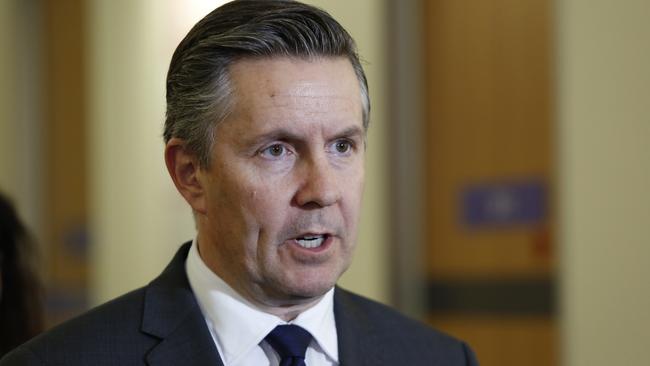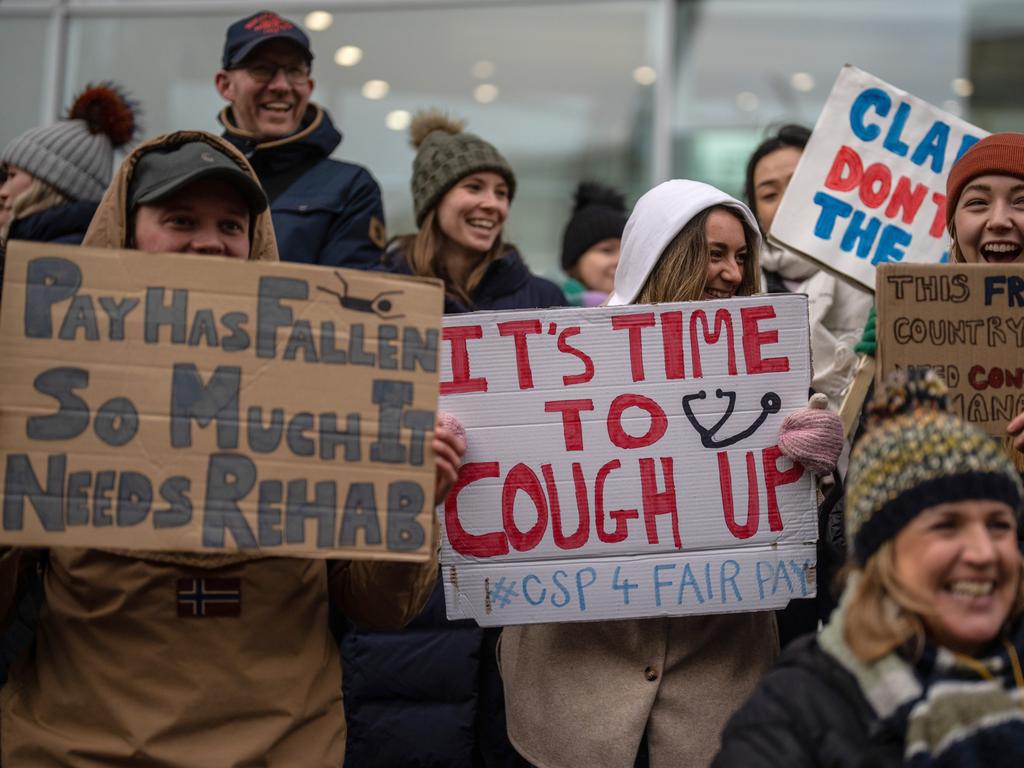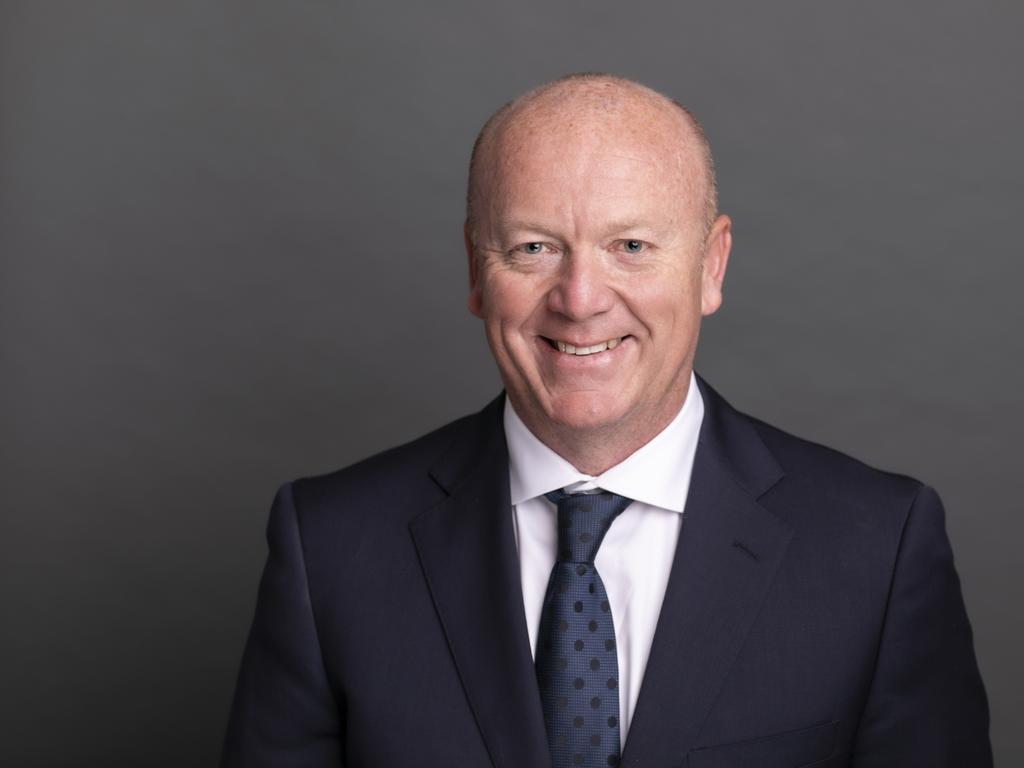Anthony Albanese urged to move faster on Medicare
The Albanese government is under pressure to explain how it will enact a policy blueprint to overhaul Medicare.

The Albanese government is under pressure to explain how it will enact a policy blueprint to overhaul Medicare, with doctors’ groups warning the decline of hospitals and general practice is happening so quickly that patients cannot wait any longer for a solution.
The Australian Medical Association is upset that despite all of the talk from the nation’s leaders going into national cabinet at the urgency of the problems facing the health system, all that was agreed on Friday was a commitment by governments to work on shared policy outcomes and discuss the issue again in April.
Anthony Albanese declared after Friday’s national cabinet that health reform would be the “first-priority issue” for national cabinet throughout 2023, but would not provide detail on how an overhaul of the system would be funded. He said a key part of the issue was people turning up at emergency departments “because they don’t have other options”.
“The starting point of our discussions isn’t about dollars and shares of funding,” the Prime Minister said. “We are working through the issues of the health system and the way it operates to make sure that patients are at the forefront.”
National cabinet was on Friday presented with the report of the Strengthening Medicare taskforce, which recommended the introduction of a new “blended” funding model that Health Minister Mark Butler described as the biggest reform to Medicare in its 40-year history.
As foreshadowed when The Australian revealed two weeks ago the federal plan to save universal healthcare, the new model will overturn the fee-for-service system of providing Medicare rebates for single episodes of care, and introduce supplemental flexible block funding for preventive care and chronic disease management provided by multidisciplinary teams with wider use of nurses and allied health in primary care.
Better access to urgent and after-hours GP care is also a key focus of governments. Mr Butler said funding for longer consult times could be put in place “very, very quickly”, and was one example of change that could be made in the near term.
The taskforce report said a wider range of health professionals must work to their full scope of practice to optimise use of the health workforce across a stretched primary-care sector. It was expected this would open up greater access to health care for some of the most vulnerable, particularly in rural and regional areas and those in aged care.
Team-based care will be commissioned for regional, rural and remote communities largely via federal government Primary Health Networks, while block funding for GP clinics in urban areas would be delivered via workforce incentive programs.
Mr Albanese was challenged as to what he intended to do immediately following the report’s release, after Labor had made Medicare reform a central plank in its re-election pitch. He vowed Labor would act immediately to begin implementing its recommendations as it pursues longer-term health reform. “We intend to act,” Mr Albanese said.
Australian Medical Association president Steve Robson said while the organisation welcomed the report and its “long-term initiatives”, there was nothing to address short-term problems facing patients and GPs.
“There is absolutely nothing in the report released today that will allow Australians who are struggling to see a GP … see that GP any more quickly (or) any more affordably,” he said.
Professor Robson said by the time the report came to fruition, “we’re all going to be standing around a rotting carcass of what used to be Medicare”.
“We need to resuscitate things now,” he said.
The Royal Australian College of General Practitioners also hit out at the lack of immediate action and questioned how the Medicare reforms would be paid for, with only $250m a year for the next three years on the table. Mr Butler has described that as a “down payment” and will now be under pressure to convince Treasurer Jim Chalmers to prioritise funding for health reform amid a stretched budgetary outlook.
“The promise of reform without proper investment to back it up is hollow,” RACGP president Nicole Higgins said. “We need serious investment and long-term reform to secure the future of general practice care, but we also need to stem the bleeding in the sector with short-term action right now. There is too much at stake to get this wrong.”
Mr Butler said the government would respond to recommendations in the report as part of its “budget process”, but said a Medicare levy would not be on the table.
“There are quite specific recommendations here and they will now go into a budget process to determine how we spend that $750m,” he said. And that will become clear on budget night.”
Opposition health spokeswoman Anne Ruston said while the report was clear on the problems facing primary care, it contained “no specific actions, no funding and no timelines”.
“Disappointingly, the report has no urgency,” she said.
“The opposition calls on the government to immediately provide the timelines and detail of the funding required to ease the pressure on Australia’s hardworking doctors and nurses.”
The taskforce report’s central recommendations are an expansion of multidisciplinary care in general practice to combat a rising tide of chronic disease and meet the healthcare demands posed by an ageing population, in line with the national 10-year primary health plan. Funding for longer consultations is another key focus.
Professor Robson said what the AMA wanted to see announced on Friday was a “retrospective indexation of Medicare rebates”. “When we analysed what had been taken out of Medicare over the last couple of decades for a single GP consultation item and it was $8bn,” he said.
“So there’s been a gutting of Medicare rebates over time.”






To join the conversation, please log in. Don't have an account? Register
Join the conversation, you are commenting as Logout